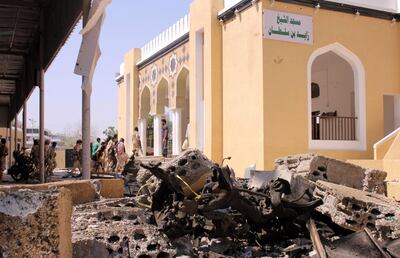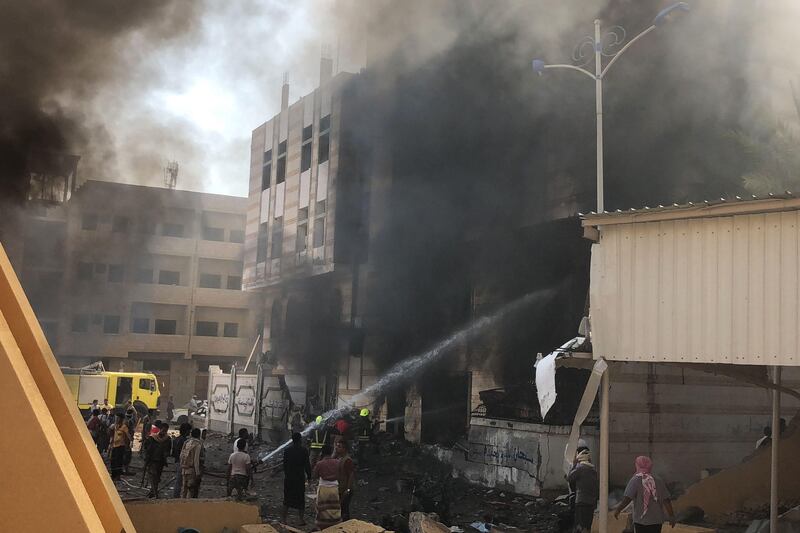At least 10 people were killed, including two civilians, when a car bomb exploded at a security post in the Yemeni city of Aden on Tuesday.
ISIL claimed the attack shortly after, saying a suicide bomber had detonated the vehicle. It comes after the group claimed a major attack in Aden on November 5 that killed 35 people and sparked a hostage crisis.
"Eight members of the security forces and two civilians were killed in a car bombing in the central district of Abdul Aziz," said the southern city's security chief, Brigadier Shalal Shaya.
"There are a large number of wounded, some of them in serious condition."
Witnesses said they heard an explosion followed by gunfire at the main office of UAE-trained security forces in charge of guarding state-owned facilities.

The Zayed bin Sultan mosque, which is located near the security office and funded by the UAE, was also damaged in the attack.
The UAE is a leading member of the Saudi-led coalition that intervened in the Yemeni war in March 2015 to help restore the government of president Abdrabu Mansur Hadi to power.
Mr Hadi's government relocated to Aden, Yemen's second city, after Houthi rebels seized the capital, Sanaa, in September 2014. The rebels later overran large parts of the rest of the country but have since been pushed back from much of the south by pro-government forces backed by the coalition.
Since launching its intervention in March 2015, the coalition's mission has expanded to include operations against extremist groups in Yemen — including both ISIL and Al Qaeda — which have taken advantage of the ongoing war to expand their reach in the south of the country.
Before the attack in Aden on November 5, ISIL had not claimed responsibility for an assault in Yemen for almost a year.





